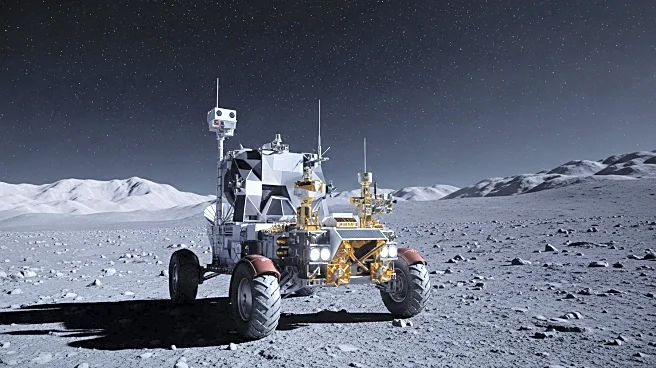What's Happening?
NASA and China are both racing to land astronauts on the moon, with NASA planning its Artemis 2 mission next year and a crewed moon landing in 2027. China aims for its first crewed lunar landing by 2030, having made progress on necessary hardware. Experts warn that the U.S. might lose the race due to the pace of SpaceX's Starship development, which is crucial for the Artemis 3 mission. If China lands first, it could shift geopolitical dynamics, affecting U.S. national security and economic ties, as China could leverage its lunar presence for political and trade advantages.
Why It's Important?
The outcome of this lunar race could have significant geopolitical consequences. If China lands first, it may strengthen its global influence, impacting U.S. national security and economic relationships. The leadership in lunar exploration will set the rules for space resource use and international partnerships, potentially affecting global power dynamics. The U.S. risks losing strategic advantages in space exploration, which could affect its ability to innovate and maintain its economic and security interests.
What's Next?
NASA's Artemis program and China's lunar plans will be closely watched as they progress. The U.S. may need to accelerate its efforts to ensure it maintains leadership in space exploration. The geopolitical landscape could shift depending on which country establishes a sustained lunar presence first, influencing international partnerships and resource allocation on the moon.
Beyond the Headlines
The race to the moon highlights the strategic importance of space exploration in global politics. Establishing a lunar presence could lead to long-term shifts in international relations, with countries vying for control over space resources and influence. The competition underscores the need for clear governance and collaboration in space to prevent conflicts and ensure equitable resource distribution.











